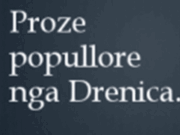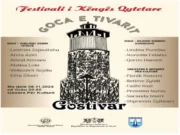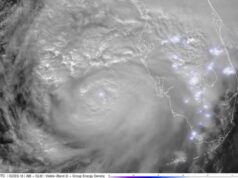Bulgaria’s National Assembly voted on November 1 to approve the second reading of amendments to the law on the media that will oblige the creation of a public register where the media must disclosure their actual ownership and sources of funding.
The amendments were approved with the backing of all parties except the opposition Bulgarian Socialist Party.
The amendments were tabled by controversial figure and Movement for Rights and Freedoms MP Delyan Peevski and three other MRF MPs. Peevski was not in Parliament, which he reportedly has not attended since the inaugural meeting of the current National Assembly in 2017.
As amended, the law now provides for annual declaration of the ownership and funding of print, broadcast and online media. In the event of failure to do so or of false data in the declaration, the penalty will be fines of 10 000 to 15 000 leva (about 5000 to 7500 euro). Second and further offences will means fines of 20 000 to 30 000 leva.
Providers of media services, including print, broadcast and online media, must indicate on their sites information about their actual owner, whether they are public office-bearers, and whether they have a court verdict against them.
The media also will be obliged to declare the name of the person who actually controls the content of the media service service and the editorial policy if this is different from the owner. Any change of ownership must be declared within seven days.
Providers of media services will be obliged to declare by June 30 each year the funding received in the previous year, including loans and grants of cash and property. The declaration should cover the amount of funding, the justification for granting it and details of the person providing it.
The declaration should cover all contracts concluded in the previous year with state and municipal bodies and companies that include state and municipal participation, with political parties, as a result of public procurement, as well as advertising contracts with juristic persons operating in certain areas, and contracts involving European Union funds.
These declarations will have to be submitted to the Ministry of Culture and published, including online, in a public register. The amendments give the ministry a year to set up this register.
The amendments empower the ministry to issue fines if the law is not complied with. If the perpetrator cannot be identified, the Ministry of Culture will be entitled to request the assistance of the Ministry of Interior.
Apart from declaring actual ownership, publishers will have to declare the number of retail outlets they have, and in the event of such distributors having more than a third, the information will be sent to the Competition Protection Commission.
Criticising the legislation, BSP MP Anton Kutev said that big business people who controlled media would be able to circumvent its provisions on declarations of ownership, through chains of companies.
Earlier, in an analysis of the bill, the Association of European Journalists – Bulgaria detailed numerous shortcomings and criticisms of it, and called for the bill to be corrected before the second reading so as to shed light on media ownership without endangering freedom of speech.

















